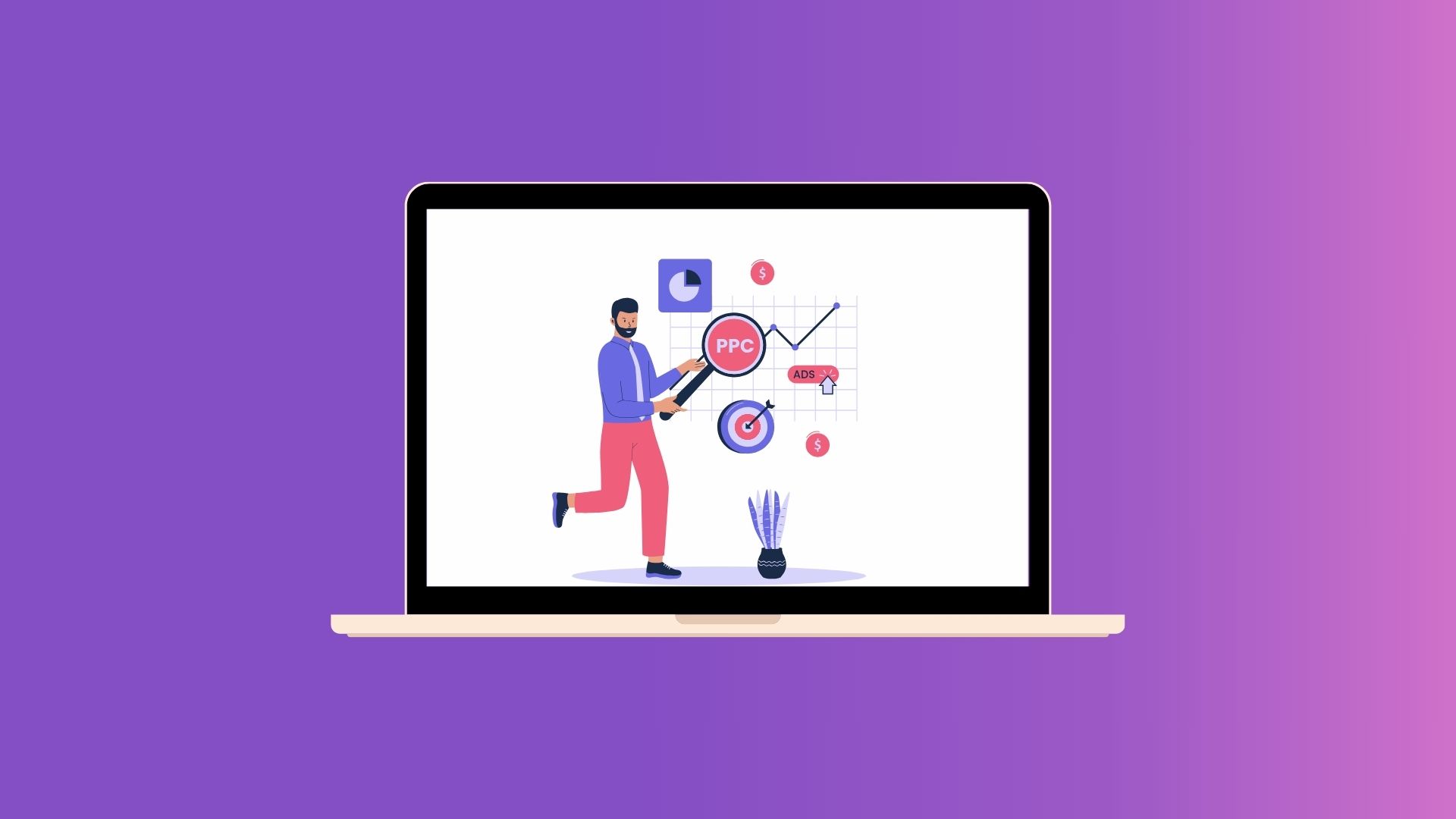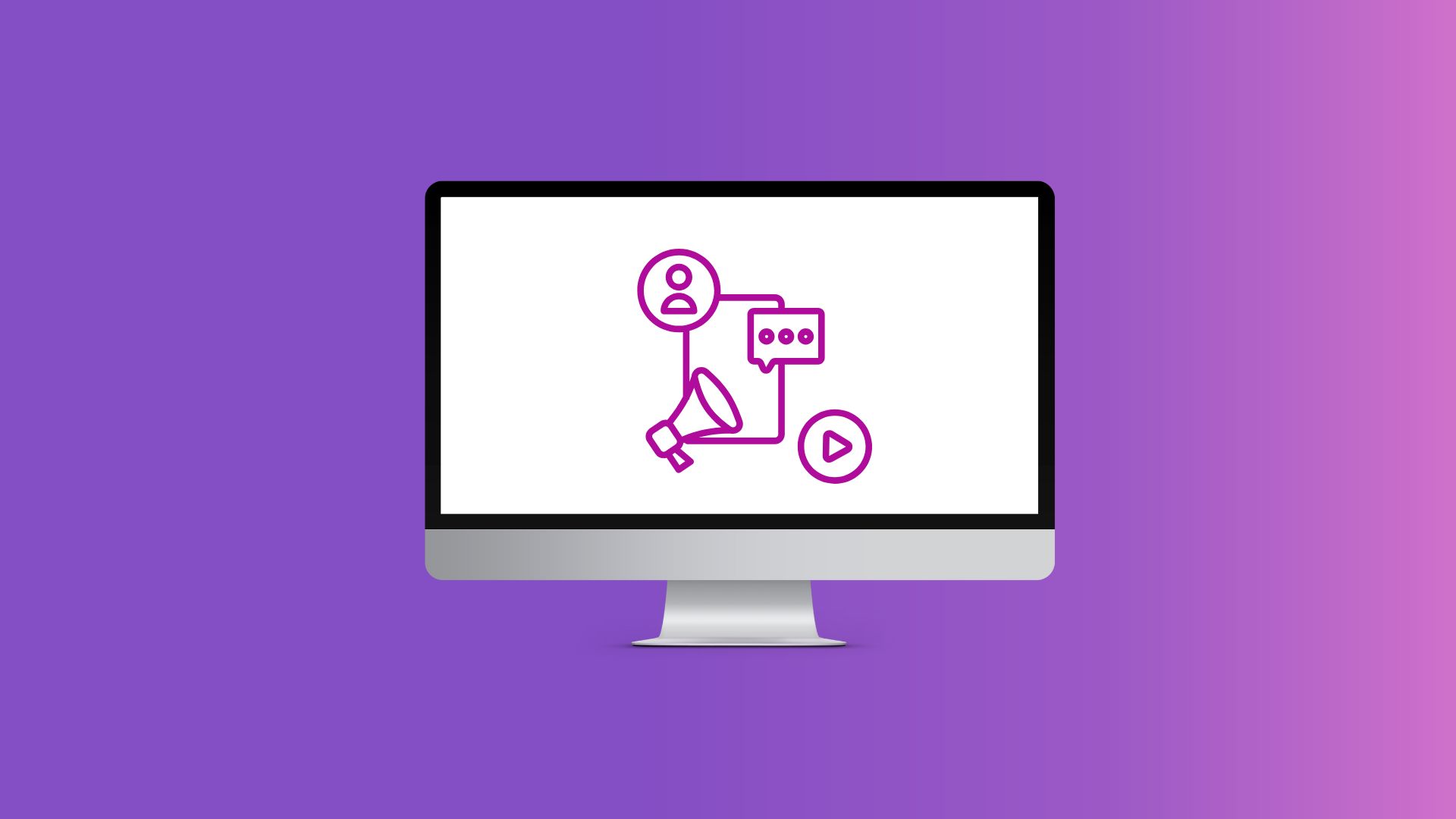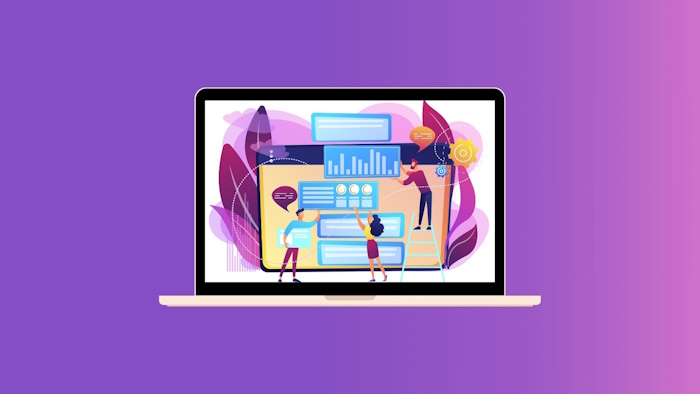What is a PPC Agency? A Comprehensive 2025 Guide

What Is a PPC Agency?
A PPC agency is a digital marketing firm that helps businesses optimize their Pay-Per-Click (PPC) advertising campaigns. PPC agencies utilize powerful data capabilities in driving targeted traffic in advertising platforms.
This includes optimizing for ad platforms like Google Ads or Bing Ads. PPC advertising services typically cover these key functions:
- Keyword research: Identify keywords that speak to users’ interests and pain points.
- Ad copywriting: Write a compelling ad copy for effective audience engagement.
- Bid management: Adjust advertising bids without overspending.
- Landing page optimization: Drive more traffic to a website’s landing page.
- Performance tracking: Monitor the PPC campaign’s performance and provide feedback.
PPC management services don’t end when they provide campaign reports. When you hire a digital marketing agency, they’ll continuously optimize your PPC campaigns. This helps guarantee the efficiency of your ad campaigns.
PPC agencies vs. in-house teams
There are over 14,000 ad agencies in the United States. Globally, the number has risen to more than 426,000 advertising groups. Digital advertising, including PPC ads, is a significant contributor to this drastic growth.
Of course, you don’t necessarily have to follow this trend. Sure, PPC agencies offer excellent services for the right price. But you can also rely on your internal marketing team.
Now, you must decide between your in-house team or a marketing agency. We enumerated the pros and cons, particularly concerning PPC marketing.
Pros of PPC agencies:
- Specialized expertise in PPC ad tools and strategies
- Scalability ability to address your business’s pressing needs
- Logical and unbiased digital marketing tactics
Cons of PPC agencies:
- Communication barriers, especially for real-time issues
- Lack of day-to-day control
- Could be more expensive, particularly for smaller businesses
Pros of in-house teams:
- Easier alignment of online ad campaigns and business goals
- Smooth flow of communication between departments
- Cost-effective in the bigger picture
Cons of in-house teams:
- Requires constant supervision and evaluation
- Requires technical workshops to upskill teams in using PPC tools
Typically, smaller businesses run their online advertising campaigns internally. This helps them save costs and allows the team to grow with the business.
On the other hand, medium to large-scale companies can outsource to PPC experts. This could help them gain an advantage over their main competitors.
What Does a PPC Agency Do?
Let’s discuss how PPC agencies fulfill their core functions.
Keyword research and optimization
Targeting the right keywords is crucial for a PPC campaign. You want your ads to be visible for keywords that people are searching for.
PPC experts are adept in keyword research and optimization. Agencies follow these keyword integration practices:
- Target audience: The key is to target the right audience for your PPC ads. After all, it’s called targeted ads for this reason. You can use Semrush or Ahrefs to analyze audience demographics on digital marketing channels.
- High-intent keywords: Aim for keywords that indicate a user’s intent to purchase or engage. One example of this keyword is “mobile car cleaning service near me”. This keyword effectively targets users searching for a mobile car wash service.
- Performance analysis: Evaluate a keyword’s performance over time. A good PPC agency can visualize fluctuations in keyword rankings. Google Analytics is a free tool that in-house teams and agencies can use. Aside from Google Analytics, you can also utilize SpyFu to identify competitors’ keywords.
Google Keyword Planner is a great tool for integrating keywords in Google Ads (formerly Google AdWords). Alternatively, social media platforms have built-in tools for audience segmentation.

Ad creation and management
Creating ads is the centerpiece of PPC marketing services. PPC teams typically include creative professionals to create advertising materials.
However, it’s not just about producing the ad copy. It goes through a process that looks like this:
- Create compelling ads that could attract user engagement. Use visuals and messaging that resonate with the audience.
- Use A/B Testing to experiment with ad formats, sizes, and descriptions. See which versions rake in the most engagements.
- Determine specific hours or days when your audience is mostly active. Look into historical data, including user behavior and browsing patterns.
- Track PPC performance on both social media and search engines.
The essence of ad management is to adapt and adjust to the trends. For search ads, you can use Google Ads Editor to refine your campaign. Agencies also use third-party tools for optimizing other channels like Microsoft Ads or LinkedIn Ads.
Bid management and budget allocation
Maximizing ROI is a staple of a great PPC agency. Businesses pay a lot for pay-per-click ads. It’s the marketing team’s responsibility to allocate resources efficiently.
This starts with bid optimization and management. Most PPC agencies look into these factors when managing bids:
- Competition: High-volume keywords come with higher bids. Smaller budget teams should target long-tail keywords with lower competition.
- Target CPA: Set a target Cost Per Acquisition (CPA). Agencies can do this on Google Ads and other ad platforms. This way, they ensure that the ad spend doesn’t go beyond the allotted budget.
- Ad quality: Ads with a higher quality score have lower costs per click. Google Ads have built-in tools to evaluate ad quality. Moreover, you can also use other tools like AdEspresso or Optmyzr.
A good PPC agency can work with any budget to achieve marketing goals. However, ensure that your goals are realistic. This is one of the secrets of successful campaign management.

Landing page optimization
Do you want your PPC ad to convert? Then, you have to optimize your landing pages.
When people click on your ads, they are directed to your landing pages. This is your opportunity to convert visitors into potential customers.
Landing page optimization is an essential aspect of PPC advertising. Here’s how a PPC management company does this:
- Design landing pages that are easy to navigate. Texts should be readable and navigation labels should be clear. Moreover, include strong CTAs that visitors can easily spot.
- Ensure that information is factual and always updated. Schedule regular content updates to guarantee accuracy and relevance.
- Test different versions of your landing pages. Experiment with different headlines, CTAs, multimedia, and themes.
When managing PPC campaigns, you need your website to be up and running. Ensure that essential pages are regularly updated. Otherwise, you’ll miss out on potential conversions from your paid search campaigns.
Performance tracking and reporting
Performance monitoring is one of the biggest strengths of a PPC company. They have unlimited access to analytics tools. Plus, they have specialized experts who can analyze data and charts.
It’s essential to track your social media and search engine optimization playbook. A PPC management agency follows these performance-monitoring procedures:
- Identify Key Performance Indicators (KPIs) for paid advertising. These metrics typically include click-through rates, conversion rates, and cost per acquisition.
- Determine the strengths and weaknesses of your ads. Analyze data-driven insights to identify areas that you must optimize.
- Benchmark your campaign setup to your competitors. Gain new ideas on how to drive more qualified traffic to your ads.
- Provide detailed performance reports for clients. These reports should include a step-by-step plan for campaign improvement.
Agencies utilize a bevy of analytics tools for PPC management. Adobe Analytics is an excellent analytics tool for Google Ads and other web-based ad platforms.
How Does a PPC Agency Operate?
PPC agencies follow specific steps in optimizing their ads management operations.
Initial consultation and goal-setting
Setting realistic goals is the first step in PPC marketing. You can only achieve this through direct communication between a business and the PPC agency.
Goal-setting is crucial for the success of any digital marketing efforts. In this process, PPC teams prioritize these key factors:
- Business niche: Understand the business’s market, products, branding, and overall goals.
- Audience segmentation: Determine the right audience for your text and video ads. Segment your audience based on demographics, pain points, and browsing patterns.
- KPI selection: Align business goals with corresponding metrics. These metrics could be related to lead generation, engagement, and conversion rates.
- Budget allocation: Identify the pricing model that fits the client’s needs. Pricing could be based on performance, projects, or required hours. Then, discuss how you’ll allocate the budget across your campaigns.
Communication is the key to this process. Goal-setting essentially becomes your guidepost throughout your ad campaign.
Strategy development
After setting realistic goals, now comes the strategy development stage. This highlights the specialized expertise of a PPC management company.
Producing a unique digital marketing tactic requires experience and experience. That’s what a PPC team is good at. An effective PPC playbook should include these aspects:
- Competitor analysis: Analyze your competitors in search engine and social media marketing. For example, doing an SEO competitor analysis can help you target high-performing keywords.
- Keyword targeting: Research high-intent keywords that are relevant to your niche. Segment your keywords to each stage of the buyer’s journey.
- Ad grouping: The Google Display Network offers multiple ad formats. This includes texts, images, videos, and interactive ads. Agencies consider audience interests when choosing a Google Ads format.
- Creative development: Create outlines and drafts for your ad copies. PPC companies typically have creative directors overseeing this process.
Campaign implementation
The next stage is where you put your preparations into action. PPC agencies implement campaigns by following these practices:
- Set up advertising accounts on your target digital channels. For search ads, link your website to Google Ads or Bing Ads. Social media channels like Meta offer built-in advertising platforms.
- Upload ad copies and optimize for the right platform-specific format. Set accurate configurations, particularly in geographic and interest targeting.
- Distribute the client’s budget into different campaigns. PPC teams should have a cost-effective strategy when they manage ads.
- Schedule PPC ads based on optimal times. Plan ahead of time to maximize visibility.
Before implementing campaigns, you must regularly review your digital marketing platforms. Check any business information posted on your website and social channels. Ensure that all information and content are accurate and updated.
Ongoing monitoring and optimization
Adapt and adjust — this is the mantra in digital marketing. You can only do this through campaign monitoring and optimization.
A PPC agency has the expertise in analyzing advertising efforts. They know how to read data and make necessary changes. Here’s how they monitor and optimize a PPC campaign:
- Track KPIs, especially Return on Investment (ROI)
- Look into performance data to adjust bids on different platforms
- Optimize keywords, especially for seasonal paid media strategies
- Experiment with different variations of ad copies and visuals
PPC companies have access to a variety of advertising analytics tools. This gives them accurate, data-driven insights to optimize a campaign.

How to Choose the Right PPC Agency
Choosing the right PPC agency requires a screening process. This involves certain criteria that you must look at:
- Experience: An agency should have inner knowledge of your industry. Look into their portfolio and certifications.
- Testimonials: Request case studies of how they worked with their previous clients. Read client testimonials and reviews to better gauge the agency’s capabilities.
- Tools: Ask which PPC tools the agency has access to. It’s better if they have subscriptions to the latest, most innovative tools.
- Support: Do they have a dedicated account manager for each client? Also, ensure that they have a 24/7 technical support staff.
Most importantly, there should be clear communication and transparency. Request for regular reports to stay on top of your PPC advertising efforts.
Benefits of Hiring a PPC Agency
Hiring a PPC agency offers multiple benefits, particularly in maximizing ROI. These benefits include:
- Access to specialized expertise in PPC advertising, especially data analysis
- Access to the latest digital tools in the advertising niche
- Ability to focus on other business aspects, including product development
- Ability to choose a flexible pricing model, including performance-based pricing
- Allows for scalability, depending on market trends and business needs
Challenges Faced by PPC Agencies
PPC agencies are excellent in what they do. But it doesn’t mean that they don’t encounter challenges along the way.
Here are several PPC-related hurdles that agencies face:
- Higher bidding costs in digital platforms
- Ad content saturation, especially in target keywords
- Fraud clicks caused by bots and competitors
- Privacy regulations and data restrictions
- Evolving algorithms of digital channels
Moreover, PPC teams constantly navigate through clients’ budget constraints. It takes careful and creative strategies to maximize clients’ investments in PPC ads.

When to Consider Hiring a PPC Agency
Are you considering hiring a PPC agency? Here are telltale signs that you need to work with them:
- Stagnant or declining PPC campaign performance
- Limited expertise of in-house marketing team
- Operating in a highly competitive and saturated market
- Need for rapid but sustainable growth
- Inadequate time and in-house resources to manage PPC advertising campaigns
Typically, these industries benefit the most from outsourcing PPC ad tasks:
- eCommerce shops and online retailers
- Real estate and property management groups
- B2B businesses targeting high-quality leads
- Law, medical, and accounting businesses trying to reach a local audience
- Small businesses requiring project-based collaborations
The key is to choose a PPC agency that specializes in your niche. You want a business partner who already has an inside scoop on your industry.
There are agencies like Fortis Media that cater to different industries. Evaluate their portfolio, certifications, and client testimonials. This way, you can guarantee their specialized expertise.
Conclusion
Working with a PPC agency is a wise investment. You can focus on other business areas while optimizing your ad campaigns.
However, it’s still an investment. Before committing to any investment, you need to consider multiple factors. Collaborating with a PPC agency is no exception.
Book consultation calls with multiple ad agencies to see the right fit. Prioritize those that have previous experiences in your niche. Choosing the right PPC agency is the first step toward maximizing your investment.
FAQs
What is the role of a PPC account manager?
A PPC account manager develops cost-effective strategies for managing pay-per-click (PPC) advertising campaigns. They work together with clients to ensure that their paid advertising campaign is aligned with current business goals. PPC account managers should also provide campaign reports and recommendations to their clients.
How do I know if I need a PPC agency?
It’s recommended to work with a PPC agency if you need scalable and more complex ad management. PPC services have adequate resources to cater to large-scale PPC operations, including specialized experts, unlimited access to advertising tools, and inside information on advertising trends.
How do PPC agencies charge for their services?
PPC agencies typically offer flexible pricing models, including hourly rates, monthly retainers, performance-based fees, and project-based fees. For smaller businesses, it’s recommended to get a project-based pricing model. For medium to large-sized businesses, it’s advised to go for monthly retainers or performance-based pricing.
What should I look for in a PPC agency?
When selecting a PPC agency, it’s essential that they have previous experience working in your niche. This makes it easier to plan an effective PPC strategy, including targeting the right audience, producing engaging ad copies, and using suitable advertising tools.
Can a small business afford a PPC agency?
Yes, small businesses can afford a PPC agency, especially if they choose the right pricing model. Advertising agencies offer flexible pricing plans, including project-based fees and performance-based pricing. Moreover, smaller agencies tend to offer less expensive prices. However, it’s still recommended to work with experienced advertisers in your niche.
Read our other articles

Google March 2025 Core Update: iGaming Industry Impact with Real Cases


Benefits of Enterprise SEO: Why Large-Scale Businesses Need It


B2B SaaS SEO: Best Practices and Strategy for 2025






